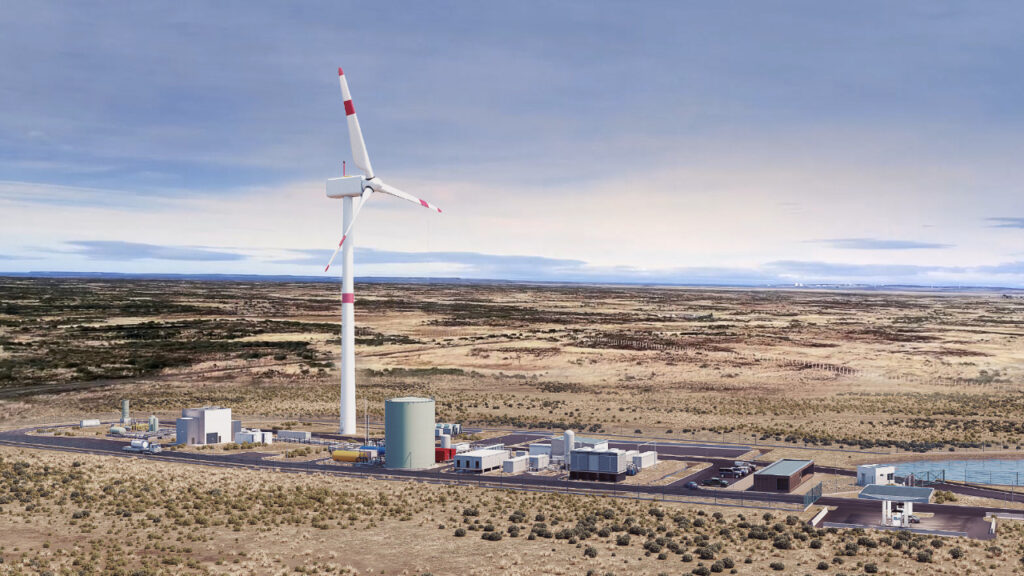Enel Chile, Porsche, Siemens Energy and ExxonMobil are some of the companies behind the Haru Oni project construction in Chile, a pilot plant to produce e-fuels based on green hydrogen.
Yesterday, during a virtual presentation of the beginning of construction in Magallanes, southern Chile, there were representatives from Andes Mining & Energy (AME), Enel Green Power, Siemens Energy, Porsche, and ExxonMobil. Also in attendance was Juan Carlos Jobet, Chile’s Minister of Energy, and the General Director of the German Federal Ministry of Economic Affairs and Energy, Thorsten Herdan.
César Norton, president of Andes Mining & Energy (AME), leading developer of the project, said, “Haru Oni will take the world’s best wind resources to produce green hydrogen and capture carbon dioxide from the atmosphere, and we will deliver carbon-neutral e-fuels, a substitute for fossil fuels in today’s machines.”
Paolo Pallotti, CEO of Enel Chile, said that “it concretely demonstrates the progress made in developing a project that shows how it will be possible for companies to achieve their sustainability goals in sectors which are difficult to decarbonize and until today, were forced to use fossil fuels”.
“The eFuels will make it possible to reduce fossil CO2 emissions in combustion engines by up to 90%. Among other things, we will be using the first fuel from Chile in our Porsche Mobil 1 Supercup racing cars from 2022 forward.”
Michael Steiner, Member of the Board of Management for Research and Development of Porsche AG.
Looking to the Future
The project, supported by the German Federal Ministry for Economic Affairs and Energy, will produce synthetic e-fuels from water, wind energy and CO2 captured from the air, with emissions approximately 90% lower than traditional ones.
Production at Haru Oni will be scaled up in stages, starting with a first phase of 750,000 liters of e-methanol in 2022, of which 130,000 liters will be transformed into e-gasoline. A second phase is expected to produce up to 55 million liters of e-gasoline per year in 2024, and more than 550 million liters per year in the third phase, starting in 2026.
“This is the first time that a synthetic fuel production project will be made from wind energy. It will combine proven technologies, but making them play a totally different and innovative role, which is precisely the added value of this solution.”
Marcelo Merli, Generation Sales Manager of Siemens Energy SpA.
Chile has set ambitious targets as part of its National Green Hydrogen Strategy, and plans to have an electrolyzer capacity of five gigawatts (GW) by 2025, increasing to 25 GW over the next five years. The nation aims to become a leading exporter of hydrogen and hydrogen derivatives.




